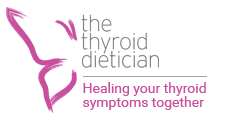A very long time ago, the father of medicine, Hippocrates, said, “All disease begins with the gut”. Fast forward to modern day and research shows us this exact statement is very true.
The discovery of a protein called zonulin by Dr. Alessandro Fasano has given health care practitioners an eye-opening lead to understanding how specific dietary triggers like gluten can affect the intestines. Zonulin is a protein that when activated by a trigger, like gluten, can cause leaky gut or intestinal permeability. It is responsible for opening the ‘doors’ of the intestine that allow bacteria, viruses, proteins, and foods to enter the bloodstream. The problem with this is that these substances should not be in the bloodstream. And this is where health issues such as autoimmune disease, neurologic disorders, and other illnesses caused by inflammation can occur.

What is the role of our intestines?
Besides the very important role of absorbing vital nutrients from the food we eat, the intestines also serve many other functions:
- Immune System – Did you know that 80% of our immune system is found in the gut? Good bacteria colonize the gut and with the nutrients we eat produce substances that kill foreign bacteria and organisms. Unfortunately, with the overly processed Westernized diet that most people are used to, these good bacteria are depleted and dangerous ‘bad’ bacteria take over causing more havoc than benefit.
There are studies that show that there are specific bacteria found in the intestinal microbiome (fancy word for all the bacteria we have in our intestines) that can actually influence the formation of T-regulatory cells of the immune system. (1-7)
- Protective Barrier – The intestines are also responsible for protecting the rest of the body from foreign substances that should not enter vital organs. As mentioned earlier, if one has a leaky gut, these foreign substances can enter the bloodstream and cause issues.
The zonulin protein mentioned earlier gives us insight into how foods like gluten can be related to decreased immunity and autoimmune disease. The most obvious example is in Celiac Disease. Celiac disease is an autoimmune disease which indicates a direct intolerance to gluten-containing foods. Once gluten is removed, the autoimmune attack on the gut is hindered. (8)
Things that affect our gastro-intestinal tract negatively:
- The use of proton pump inhibitors like Nexium or Prilosec – According to Dr. Izabella Wentz, a trained pharmacist, these drugs are over-prescribed for issues such as GERD (Gastro-esophageal reflux disease). (9) They decrease the amount of stomach acid found in the stomach resulting in disaster for proper breakdown and absorption of nutrients. Also, stomach acid is important in protecting the intestinal tract from dangerous bacteria. People with decreased stomach acid are more vulnerable to developing SIBO or Small Intestine Bacterial Overgrowth (and we are not talking about the good bacteria!).
- Diet full of sugar and processed grains. Sugar is an easy way to feed unwanted bacteria and as stated before, gluten from processed grains exacerbates a leaky gut.
- Antibiotics. Sure, antibiotics have helped us to recover or protect us from possible dangerous illnesses. However, with too much exposure to antibiotics, the delicate balance of good and bad bacteria is disrupted.
- Oral contraceptives. There is research that shows that the birth control pill can cause changes in beneficial bacteria and causes nutrient depletions. In fact, oral contraception is one of the reasons autoimmune disease is more common in women than men. (9)
Signs That Your Gut Needs Help:
The following list shows A FEW symptoms that indicate your gut is trying to tell you something (pun intended):
- Bloating/gas/cramping
- Constipation
- Diarrhea
- Feeling full shortly after starting a meal
- Fatigue
- Brain Fog
- Inability to concentrate
- Tingling in head, feet, and hands
Steps to take for healing the gut:
Increase stomach acid – One can do this naturally by sipping on warm water with lemon and ginger or taking a couple of Tablespoons of Apple Cider Vinegar before eating. This stimulates stomach acid production.
Home-made bone broth is also imperative to increasing stomach acid production.
Get rid of food that exacerbates the gut
AVOID wheat, rye, and barley that are found in foods like bread, pasta, croissants, cereals, biscuits, cakes, pancakes, doughnuts, etc. Science has shown us that eliminating gluten can vastly improve symptoms of the gut.
For some people, it may be prudent to also avoid dairy for a certain period of time. Afterwards, fermented versions of organic dairy can be re-introduced. For example, organic yogurt and kefir are good options. In many cases, goat’s or sheep’s milk is better tolerated than cow’s milk.
AVOID processed foods in general. If you are serious about improving your health, it is a no brainer that you should avoid most things that come in a box. A lot of the additives that are found in processed foods are the exact substances that can irritate a healthy GI tract.
AVOID common GMO foods. Wheat and soy are two of the most genetically-modified foods in the world. Although there is documented research that soy can help prevent diseases like cancer, the abundance of cheap soy additives (soy lecithin) and over-production of genetically-modified soy have added to the hormone imbalances many deal with today. Unless soy is fermented in the form of miso or tempeh, it should be avoided as it is an endocrine disruptor.
Add back real nutrition
Cook or steam fruits and vegetables – Depending on the extent of GI damage or discomfort, it may be useful to cook and/or steam fruits and vegetables in order to decrease the phytic acid. Phytic acid is found in raw fruits and vegetables and can irritate the intestinal lining. You can use apple or pear purees.
Add bone broth to your daily routine – Drinking 2-3 cups of bone broth on an empty stomach per day can help the repair of your intestinal lining. It contains the building blocks of collagen in the form of lysine, glycine, and proline. This will really help to repair any intestinal permeability.
Increase good bacteria – Here it is important to add fermented foods to boost the good bacteria found in the gut. Foods like kefir, yogurt, sauerkraut, and kambucha should be consumed daily. FYI, did you know that home-made sauerkraut can have up to 1 trillion good bacteria?!
Add organic and grass-fed meat and poultry – This will provide you with the protein needed to heal and will help you to avoid any added antibiotics, hormones, or pesticides found in conventionally-raised meat and poultry. Free-range organic eggs also offer a powerhouse of nutrition needed for GI healing. Feel free to make your favorite omelet or to use eggs in other recipes.
Add back good fat – Saturated fat is essential for the proper functioning of the intestinal tract. Include foods like coconut oil, grass-fed butter (if tolerated), and olive oil on a daily basis. Wild-caught fish like salmon and mackerel 2-3 times per week are also great sources of omega-3 fatty acids used to decrease inflammation.
Take- Home Messages:
The above may seem like a MAJOR lifestyle adjustment, but it’s worth it if your health will benefit in the long-run.
Remember that there is ongoing research that links an unhealthy gut to diseases like cardiovascular disease, Alzheimer’s disease, diabetes, autoimmune disorders like Hashimoto’s Thyroiditis, and cancer.
Take your health into your hands by making small, sustainable changes on a daily basis and write down what you do to become accountable to the changes you are making.
Avoid foods that exacerbate the functioning of the gastro-intestinal tract and add back real food that will aid in healing.
References:
- Arpaia N, Campbell C, Fan X, Metabolites produced by commensal bacteria promote peripheral regulatory T-cell generation. Nature 2013; 504:451–455. >
- Atarashi K, Tanoue T, Oshima K, Treg induction by a rationally selected mixture of Clostridia strains from the human microbiota. Nature 2013; 500:232–236.
** Using a novel strategy to identify bacterial communities from the human gut microbiota that promote Treg development, the authors identify 17 strains of nonpathogenic Clostridia capable of inducing Treg. This approach is instructive for the rational design of probiotic therapies. - Atarashi K, Tanoue T, Shima T, Induction of colonic regulatory T cells by indigenous Clostridiumspecies. Science 2011; 331:337–341.
- Furusawa Y, Obata Y, Fukuda S, Commensal microbe-derived butyrate induces the differentiation of colonic regulatory T cells. Nature 2013; 504:446–450.
- Narushima S, Sugiura Y, Oshima K, Characterization of the 17 strains of regulatory T cell-inducing human-derived Clostridia. Gut Microbes 2014; 5:333–339.
- Smith PM, Howitt MR, Panikov N, The microbial metabolites, short-chain fatty acids, regulate colonic Treg cell homeostasis. Science 2013; 341:569–573.
- Faith JJ, Ahern PP, Ridaura VK, et al. Identifying gut microbe-host phenotype relationships using combinatorial communities in gnotobiotic mice. SciTransl Med 2014; 6:220ra11.
* These authors describe another unbiased novel method for identifying bacterial strains capable of inducing Treg. - Puppa ELGreenwald B Goldberg E Guerrerio A Fasano A. Effect of gliadin on permeability of intestinal biopsy explants from celiac disease patients and patients with non-celiac gluten sensitivity.Nutrients. 2015 Feb 27;7(3):1565-76. doi: 10.3390/nu7031565.
- Wentz, I, Nowosadzka, M, Hashimoto’s Thyroiditis, Lifestyle Interventions for Finding and Treating the Root Cause. 2013



